NEW WEIGHT LOSS FOD ITEMS
New healthy foods and new food trends for 2020
Meat-like, plant-based burgers satisfied many carnivores' cravings for animal protein, while plenty of others ditched dairy for trendy oat milk lattes in 2019.
So what's on the horizon when it comes to new foods in 2020? Well, it turns out a lot of the same — with a few nutritious twists.
TODAY Food scouted out the new and emerging food products that are all packed with a purpose, whether that's helping diners incorporate more fiber into their diets, cut down on cholesterol, be more environmentally friendly or even get better sleep.
1. Sweet potato is the new cauliflower
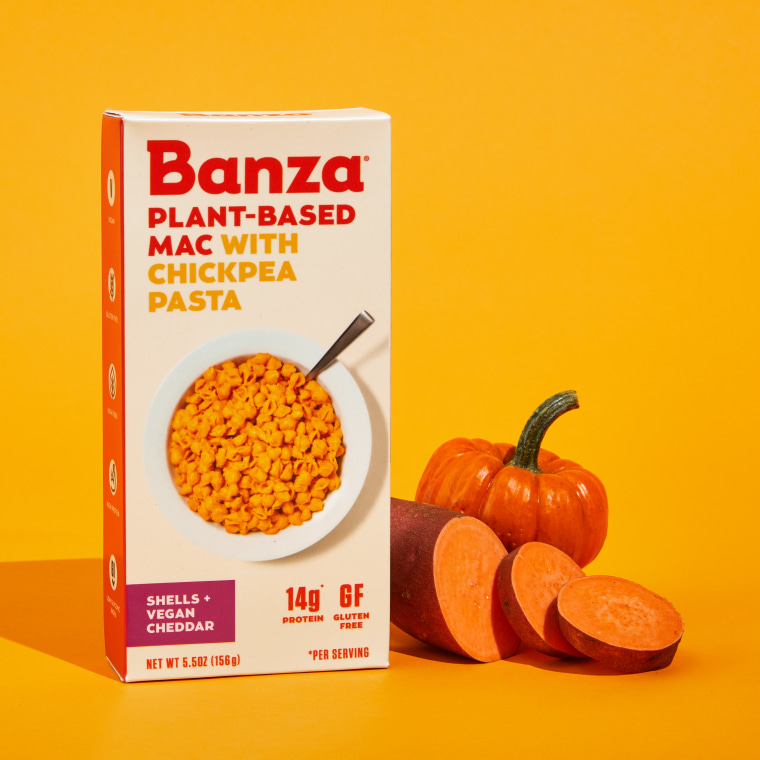
This nutritious tuber has long been a staple at holiday meals but it's about to get the cauliflower treatment. Banza’s Plant-Based Mac with Chickpea Pasta is launching in January 2020 and boasts a cheese-less "cheddar" sauce made from sweet potatoes and nutritional yeast.Sweet potato also adds color and nutrients to Maria and Ricardo’s grain-free plant wraps, which offer a half serving (equivalent to 1/2 cup) of veggies per wrap. And instead of snacking on potato chips, try Spudsy, a puffed snack made with upcycled sweet potatoes that were deemed too ugly to be sold at the grocery store. The spuds (which taste exactly the same as their prettier counterparts) get turned into sweet potato flour, before being combined with pea protein and rice flour to make a crunchy snack.
2. Fish is going faux
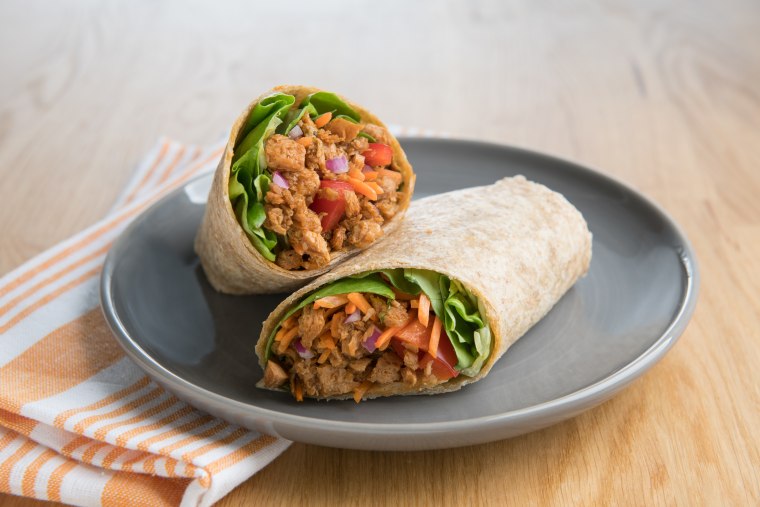
If 2019 was the year of the Impossible Burger, 2020 may just be the year of plant-based fish. Tuno is a seafood alternative made from soy protein and seaweed (which contains beneficial DHA, a type of omega-3 fat) and promotes itself as a more sustainable alternative to seafood. Good Catch offers more seafood options sans fish, but creates its products with a blend of six legumes and adds algal oil for that “of the sea” flavor. The company currently offers pouches of plant-based "tuna" and will release frozen, plant-based crab cakes as well as “whitefish” sliders, in 2020.
Finless Foods is also on a mission to create nutritious seafood without harming live fish. It's growing bluefin tuna cells that can then be harvested and eaten. This product is set to make its market debut by the end of 2019, with more species to follow.
Eating seafood is touted by most health institutions, including the American Heart Association, as one of the keys to living a long, healthy life. But some consumers just don’t like the taste, or are concerned about the environmental impact of fishing. These options will offer consumers alternative protein options that mesh with different dietary plans and eco-friendly beliefs.
3. Plant-based yogurt, ice cream and creamers galore
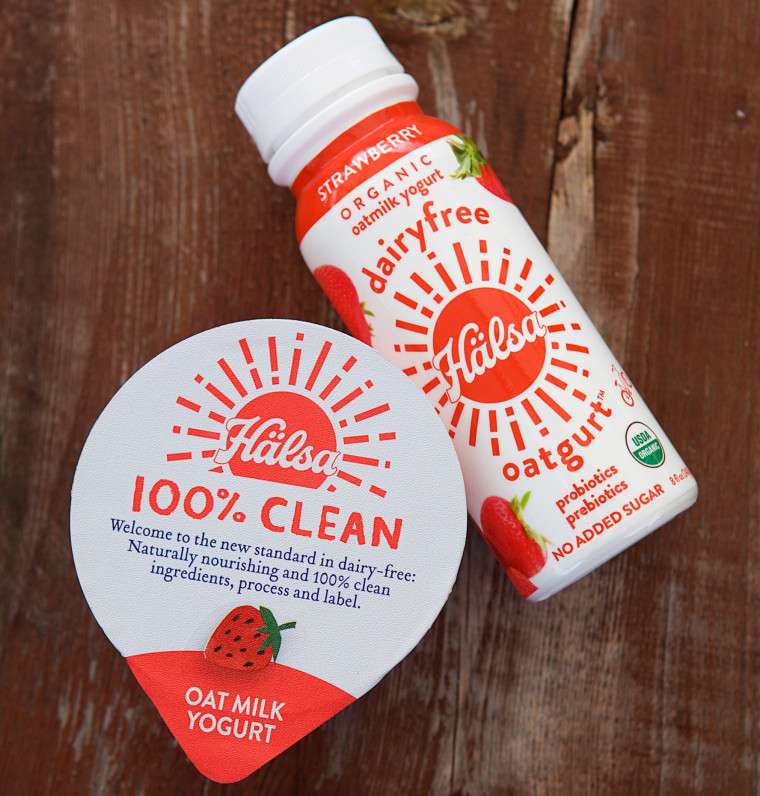
There are now dozens of oat, hemp, coconut, flax and almond milk (or mylk) options on the market ... and even more are coming. Care for a little pistachio nut milk or black sesame milk? New, plant-based milks from Three Trees are delicious and offer home cooks the ability to add unique flavors to traditional dishes. Even dairy behemoth Chobani will be offering a new line of oat-based drinks and blends (aka oat yogurt) that will roll out in January. The Greek yogurt brand joins Scandinavian company Halsa (“health” in Swedish), which launched its organic "oatgurt" in September.
The range of plant-based creamers for your morning latte is expanding, too, with pecan milk options from Malk and banana milk versions from Mooala. In January, artisanal ice cream maker, Van Leeuwen will launch a line of oat milk ice cream (flavors include Caramel Cookie, Cookie Dough Chunk and Mocha Latte) that will be sold in grocery stores and scooped at local shops.
If you still want to reap the benefits of traditional dairy (like calcium, vitamin D, protein and potassium), but also want to avoid lactose and cut some calories, give Live Real Farms' dairy and oat blend a try. This hybrid combines low-fat milk with oats, plus the enzyme lactase for a lactose-free milk beverage that's creamy and satisfying. Compared to oat milk (90 calories per cup) and 2% cow's milk (130 calories per cup), this dairy blend is a nice compromise with 110 calories per cup.
4. Mocktails over cocktails
Not long ago, people who abstained from drinking alcohol had few options at most bars. Thanks to wellness-obsessed millennials, we’ve seen the rise of zero-proof beers that are still flavorful, plus a bevy of drink mixers meant for mocktails. The “sober curious” movement has gained in popularity with folks in their twenties, giving rise to delicious, alcohol-free beverages beyond seltzer.
Bars without alcohol? Inside the growing ‘sober curious’ trend
MAY 27, 201903:42HopTea brews tea (black, green and white) with hops for people who enjoy the hoppy flavor of a craft beer, but don’t want the extra calories or a hangover. Kater Wingman is creating refreshing, electrolyte-enhanced sparkling waters in beer bottles. Non-alcoholic craft beers like Hairless Dog, which has increased production by 400% in the last three months, uses a proprietary brewing process where alcohol is never introduced. Traditional low-alcohol beer, like O’Doul's, use a distilling process that still leaves a trace amount of alcohol (0.5% ABV) in the drink.
More bars are even popping up to cater to the trend. Getaway, the first alcohol-free bar in Brooklyn, New York, has a complete menu that includes non-alcoholic beer, wine and cocktails, plus house-made shrubs. Sans Bar, the first sober bar in Austin, Texas, caters to both sober and sober-curious crowds. Its founder and CEO Chris Marshall, previously worked as a substance abuse counselor and wanted to create a fun space that took the stigma out of living sober. In 2020, Sans Bar will be running pop-up events throughout the country in partnership with Dry Soda. Hotel chains like Hilton will also be offering guests zero-proof crafted cocktails, alongside the usual options, in 2020.
5. Snacks to help you sleep
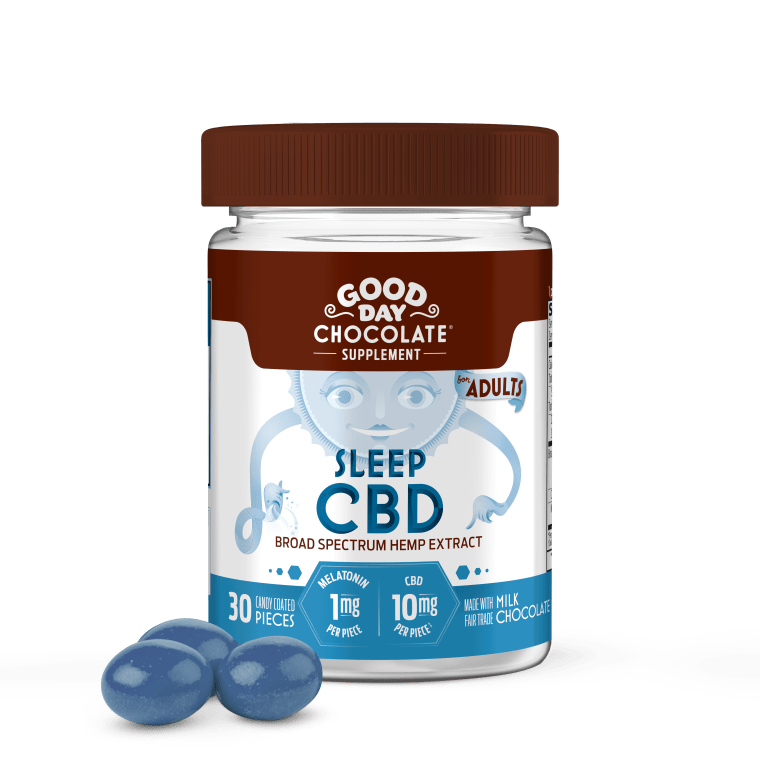
It's no surprise that many of us are having a tough time sleeping these days. Sleep-related products have been creeping into the market in recent years (and are estimated to grow to a $101 billion business by 2023). In 2020, we’ll be seeing more food-based solutions that will purportedly help us nod off.
If you’re feeling anxious after scrolling through your evening news feed, try whisking up a caffeine-free Night Time Latte from Pukka. It features classic relaxation herbs like lavender and chamomile. Chamomile and lavender are flowers with documented health benefits. Chamomile has a mild sedative effect and lavender has been found to reduce anxiety and improve sleep quality. It also contains the adaptogenic herb ashwagandha, which has been used in Ayurvedic medicine for hundreds of years.
Or try nibbling on an Evening Calm Dark Chocolate Cluster from Good Source Foods with sleep-inducing ingredients like melatonin-rich dried cherries, lavender powder and anti-inflammatory turmeric. If those soporific snacks don’t do the trick, you can munch on a CBD-infused chocolate from Good Day Chocolate. Each candy-coated milk chocolate sphere contains 10 milligrams of CBD (from organically grown hemp), along with 1 milligram of melatonin, plus chamomile extract. Melatonin, a hormone that regulates sleep, has been shown in several studies to help with insomnia. As with all supplements, you should discuss using CBD with your doctor before trying it out, especially if you are on any type of medication.
6. Blended burgers and mighty meats
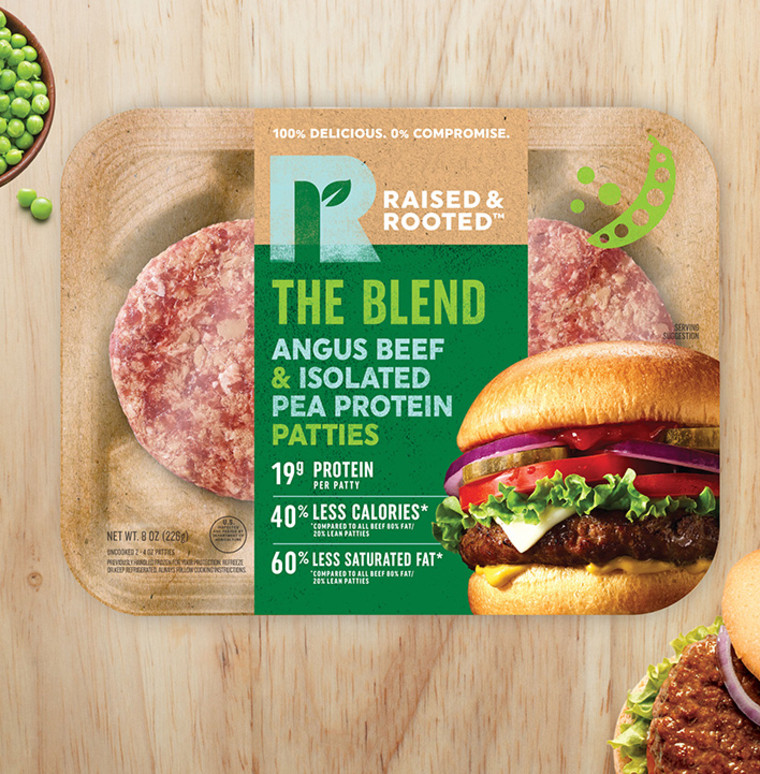
Currently, 3% of the U.S. population identifies as vegan, but meat-free offerings have proliferated this year with the nationwide launches of Beyond Meat and Impossible Foods. Conscious carnivores are looking for ethically raised meat that is better for them (whether that's protein with less cholesterol, fewer calories or more nutrients), as well as the planet. Overall, a lot of people are just eating less meat so food companies are starting to innovate by incorporating the benefits of plants into the products they already sell.
In 2020, look for beef and chicken to get cozy with legumes, cauliflower and brown rice. There will be new offerings from Perdue, like Chicken Plus Dinos, nuggets made with chicken, cauliflower and chickpeas. Inspired by artisan butchers, Misfit Foods has been developing a line of chicken sausages that are vibrantly colored and very veggie forward, boasting a mix of 50% ground chicken with 50% vegetables, such as kale, gold squash and sweet potato. Tyson, known for meat-centric brands like Hillshire Farms and Jimmy Dean, is behind the recently created Raised & Rooted. The brand's “The Blend” patties feature ground Angus beef and isolated pea protein, so each serving has about 40% fewer calories and 60% less saturated fat than a typical beef patty.
7. Plant-based butters are back

Dairy butter and ghee have seen a renaissance in the last few years thanks to the popularity of higher-fat diets like keto, but it may be time to reconsider plant-based spreads. While the margarines many people grew up with featured a combination of vegetable oils (some of them partially hydrogenated) and whey, the latest plant butters are vegan and contain no trans fats. Plus, they’re creamy, tasty, spreadable and can be used to make all types of different dairy-free creations.
Miyoko’s cultured vegan butter is made with organic coconut oil and cashew cream that’s fermented with live cultures, creating a tangy and very butter-like experience. Melt Organic’s spreadable plant butter is made from a blend of coconut, palm, sunflower and flaxseed oils. And Country Crock has revamped its product line to include plant butters that boast a blend of palm kernel, canola, palm fruit and avocado oils. These new butters do still contain saturated fat, but have less per tablespoon (3.5 grams to 5 grams versus 7 grams) than traditional butter.
8. Fruit flours and potent powders

Keep the doctor away in 2020 by using apples for more than just an afternoon snack. Hearthy Food's apple flour is the latest go-to for those seeking gluten-free alternatives to make baked goods and more. Since it’s made from whole apples, it offers an apple-forward flavor, so it might not be suitable for every type of recipe.
Another new flour on the horizon? Banana. Let's do...Organic Organic Green Banana Flour might just change your banana bread game forever. It's free of gluten and grains, plus it has fiber. And, like bananas, it also has a healthy dose of potassium.
The antioxidant-rich pomegranate fruit is delicious, but it's hard to find the fruit fresh year round. Carrington Farms' pomegranate powder, made from the juice of the fruit, allows you to easily add this super fruit to smoothies, baked goods and more any time. The flavor is tartly sweet, just like the fruit itself.
Frances Largeman-Roth, RDN, is a nutrition and wellness expert, writer, mom of three and bestselling author. Her books include "Feed the Belly," "The CarbLovers Diet" and "Eating in Color." Follow her on Instagram and check out her website.





Comments